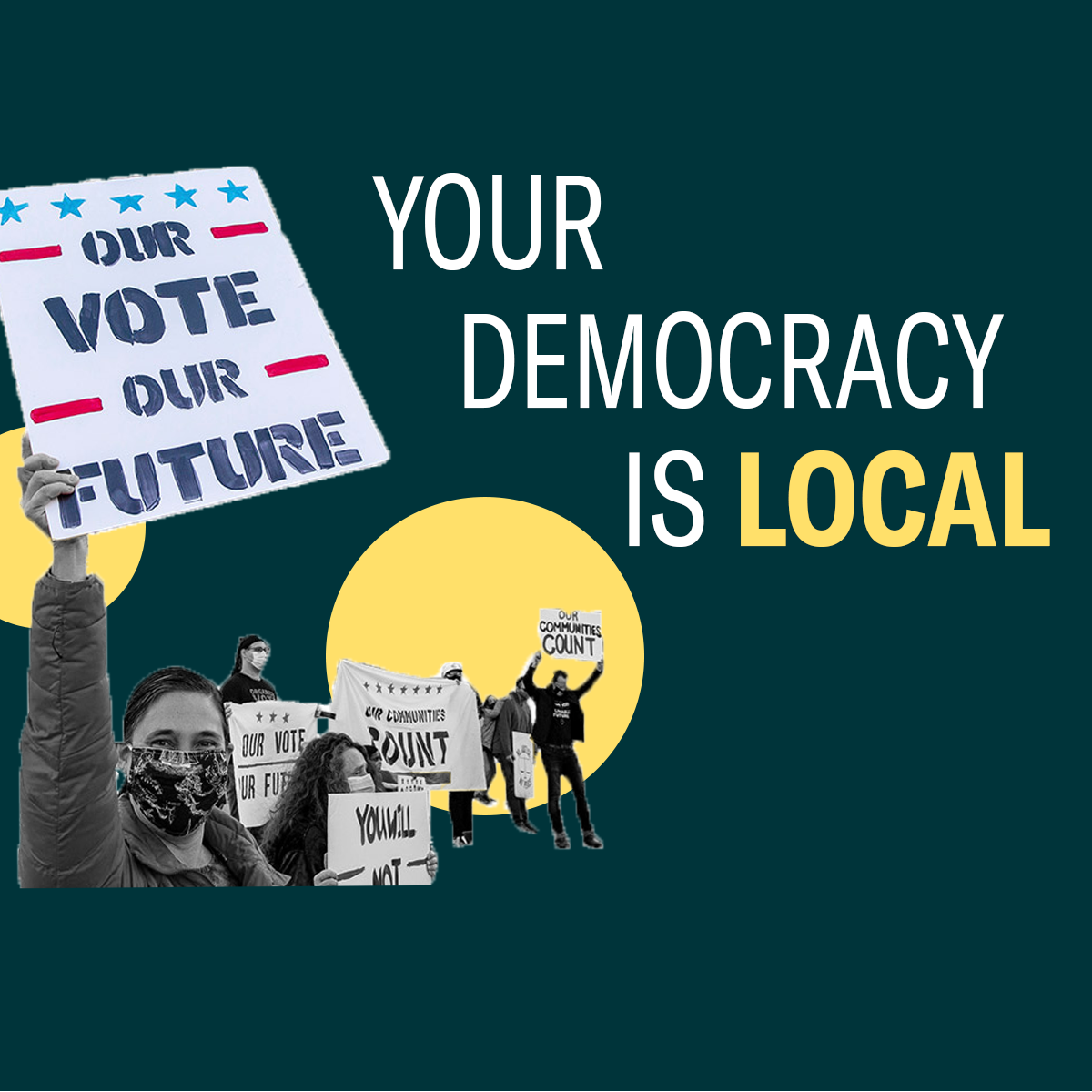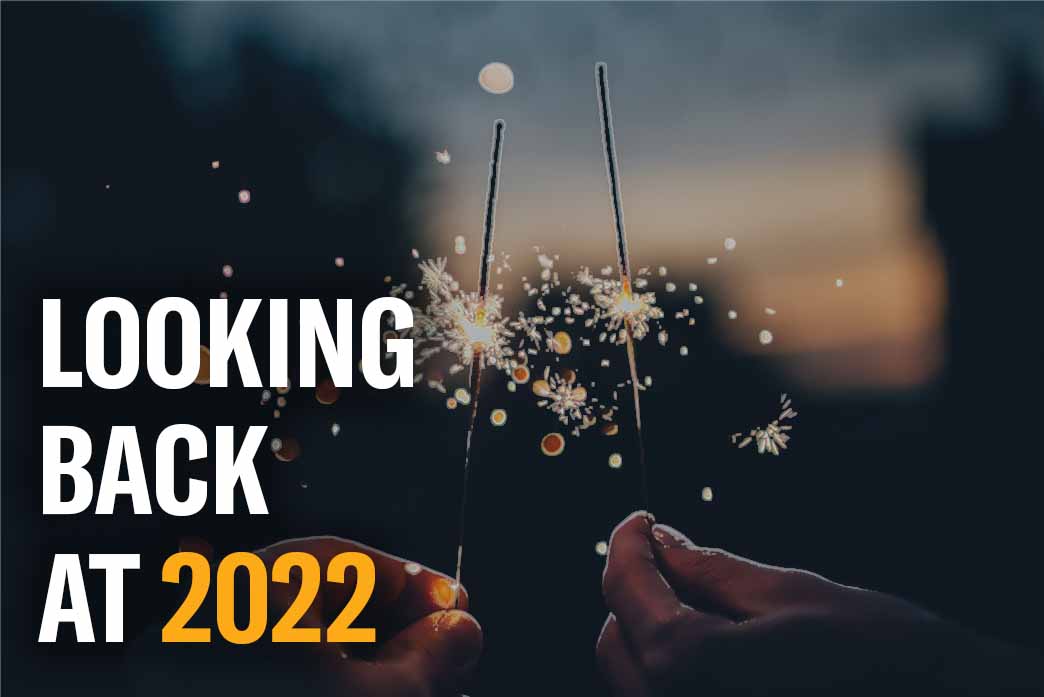Kansas voters tapped into their pro-freedom roots last year, overwhelmingly rejecting a proposed state constitutional amendment that would have taken away the fundamental right to an abortion in the state constitution by 16 points—a 165,000 vote difference.
Despite this, lawmakers opened the 2023 legislative session by trying to further curtail abortion access anyway.
It’s clear our lawmakers don’t always represent our values, and this doesn’t just show up in the landscape for reproductive freedom. It also shows up in one of the most fundamental parts of our democratic process–voting rights.
Already this session, lawmakers have introduced numerous bills to curb our access to voting.
But when it comes to expanding access, many changes can happen without spinning your wheels in the halls of the Topeka Statehouse. Many decisions about the election process happen at your local county courthouse, where county clerks have the power to make democracy more accessible in many ways.
The constitutional right to vote is the heart of our democracy and system of governance. The right to vote is the vehicle through which a citizen has a voice in selecting and holding accountable those in power. If we sincerely believe in a representative government, we should strive to make it easier, not harder, for all eligible Kansans to vote. We should remove the unnecessary barriers throughout the voting process, from registering, to casting a ballot, to ensuring that every ballot counts. Expanding early voting access through increasing hours and locations is a simple but effective way to ensure voters have access in between working, caring for families, and other responsibilities.
It’s in the details of the voting process that we’ll improve access for everyday Kansans – and that access for the people is what underlies the very values of a representative democracy.
It’s these values that bring us to your county to strategize for local election reform in the coming months. Are you feeling powerless in the fight against extremism? You shouldn’t. The New York Times estimates that only 27% of eligible voters participate in local elections, and we can only imagine how this number could change if there were fewer barriers between voters and casting their ballots.
That’s why we’re coming to your county to strategize for local election reform – with you.
RSVP today for Your Democracy is Local: Meet Your Organizer and Strategize for Local Election Reform:
Last August, we saw the power of when Kansans put aside partisan differences and dig deep to think meaningfully about how we respect one another’s rights – and turn out to vote accordingly. Our hope is to ensure that last August is less of a historic anomaly and instead, that what we call record turnout becomes the norm in every county – starting with yours.
Date
Tuesday, January 31, 2023 - 4:00pm
Featured image
Show featured image
Hide banner image
Related issues
Voting Rights
Show related content
Pinned related content
REPRESENT! RECLAIMING OUR VOTE AND RESTORING OUR DEMOCRACY
Your Democracy is Local: Sedgwick County
Your Democracy is Local: Ellis County
Your Democracy is Local: Shawnee County
Your Democracy is Local: Wyandotte County
Tweet Text
[node:title]
Type
Menu parent dynamic listing
Show PDF in viewer on page
Style
Standard with sidebar
Show list numbers
Author
Allie Utley — Field Organizer
We’re looking back on our work to create a more perfect union in Kansas – beyond any one person, party, or side.
In 2022, we…
…KEPT OUR GOVERNMENT TRANSPARENT.
In an ongoing and needlessly prolonged process, we won a decisive victory in July when the Kansas Court of Appeals found Secretary of State Scott Schwab violated public records law when he had removed functionality for a voting records report.
The saga began shortly after the 2018 election when our client Davis Hammet, founder and president of the voter advocacy organization Loud Light, realized a startling number of provisional ballots had been rejected. He filed a Kansas Open Records Act request so his organization could empower Kansans to cure outstanding issues with their ballots.
The Secretary of State ignored the request, and in June of 2020, we sued in the first Hammet v. Schwab case of the year. In July, a district court decided in our favor, compelling the Secretary to provide the requested documents.
Following the decision, Sec. Schwab requested that the database vendor revoke his access to the provisional ballot report, then responded to Mr. Hammet most recent request that his office was unable to provide these records. We were forced to sue (and win) again in our second Hammet v. Schwab case in 2020.
The case was an intersection of government transparency, accountability and voter empowerment – all of which are fundamental to a functioning and strong democracy. Clearly, government agencies should be working to make records more transparent, rather than less.
…CONFRONTED UNFAIR MAPS.
Gerrymandering has been a dirty political trick for well over a century, but its pervasive use in our country in recent years may be more destructive than ever. Under the guise of a fabricated need to break up Johnson and Wyandotte Counties, Kansas legislators leveraged this anti-democratic tactic to the Free State in 2022.
We won a decisive victory in the district court in our challenge to Kansas redistricting, where we showcased the racial discrimination baked into the politically calculated Ad Astra map that systematically and surgically broke up communities of interest to dilute their voice. Our expert witnesses used computer models to show that, given the requirements of a redistricted map, the politician’s map was as extreme and calculated as possible.
Unfortunately, the Kansas Supreme Court overruled the district court by a narrow 5-4 vote, and the racially gerrymandered map was allowed to take effect.
The ruling set a standard for evaluating claims of intentional race discrimination that is contrary to legal precedent and inconsistent with numerous cases interpreting the federal Equal Protection Clause. Kansans would be precluded from ever bringing a case alleging intentional discrimination in the drawing of maps. This result is contrary to the entire purpose of the protections provided by the Equal Protection Clause and, if uncorrected, grants license to the Kansas legislature to intentionally discriminate against racial and ethnic minorities. With our partners last month, we petitioned the U.S. Supreme Court to correct this grave legal error.
…MADE HISTORY IN THE FIGHT FOR REPRODUCTIVE FREEDOM.
In 2022 one of our worst fears came true: the Supreme Court ruled 5-4 to end federal protections for abortion rights and reproductive freedom, abruptly overturning decades of precedent.
The ACLU was paramount in having these rights recognized 50 years ago through Roe v. Wade, so it was gutting to see these protections discarded and to witness how the 2022 Bostock decision recklessly put pregnant people across the country in danger.
In Kansas, a 2019 state Supreme Court decision in Hodes v. Nauser found bodily autonomy was protected under the Kansas Constitution—in response, radical politicians opted to change the Constitution itself to exclude protections for pregnant people’s healthcare by introducing a constitutional amendment for the 2020 election.
In a shifty attempt to bypass the will of the majority of Kansans, legislative leaders placed the amendment on the ballot for the August 2nd primary, during which historically lower turnout could improve the amendment’s chances of slipping through and taking effect.
Despite these political games, Kansans came out in droves to vote “no”. The August 2nd amendment not only failed -- it was resoundingly crushed by a historical 18 points. On top of protecting our rights in Kansas, the decisive margin discouraged other states from even attempting this radical move and shifted national understanding of where voters really stand on the issue. The eyes of the world were on Kansas, and we said in no uncertain terms, across all partisan lines, that we stand for civil liberties.
BUT WAIT, THERE’S MORE. In 2022, we stepped forward in other fights.
WE SHOWED UP FOR…
…KANSAS VOTERS;
Our Election Protection work continued in the historic 2022 election season, providing live, nonpartisan assistance to voters across the state with a team of attorneys and volunteers at various polls.
…FIRST AMENDMENT RIGHTS;
We called on the St. Marys City Commission to reverse course on its threat to reject the Pottawatomie Wabaunsee Regional Library’s lease after the library refused to remove all LGBTQ+, sexual, racial, or otherwise “socially divisive” content.
AND LGBTQ+ KANSANS;
We outlined the dangers of the Gardner Edgerton School District’s proposed policies that would violate the rights of transgender students. We also launched our LGBTQ+ Advocacy Landing Page to help empower LGBTQ+ Kansans and advocates across the state to house various resources and information, including toolkits explaining our legal rights and how to enforce them.
We also had some wins along the way in our ongoing work to challenge…
…unconstitutional wait-times for mental health evaluations;
In May, we filed a lawsuit against the Kansas Department of Aging and Disability, which runs the forensic unit at Larned State Hospital, for prolonged wait times for mental health evaluations. Some people may spend more time waiting in jail for an evaluation or treatment bed than they would face in prison if they were convicted. The long waitlist exacerbates the mental health challenges of those on the list, subjects them to prolonged punishment, and violates their Constitutional rights.
…the discriminatory gang list in Wichita;
We’re holding to account the Wichita Police Department’s discriminatory and unconstitutional “gang database,” which errantly targets people of color for profiling premised on flimsy vague criteria. In January, a court ruled that our clients indeed have standing and can continue with the case. The state statute authorizing WPD’s gang list and the department’s application have harmed residents across Wichita and Kansas, subjecting numerous people to profiling, harassment, and targeting by the department.
…and the Kansas Highway Patrol’s practice of targeting and searching drivers.
In 2020 we filed a lawsuit to end Kansas Highway Patrol’s practice of targeting out-of-state motorists and using a training technique knowns as the “Kansas Two-Step” to circumvent their constitutional protections and subject drivers to prolonged detention and canine searches.
This year in June, the 10th Circuit Court of Appeals upheld a lower court’s denial of summary judgement, allowing the case to proceed to the District Court of Kansas, and denying the state of Kansas’ claim that qualified immunity shielded the defendants from responsibility in the facts of the case.
As we close a historic year for civil rights and civil liberties, we’re re-committing to protecting the civil rights and liberties of all people living in Kansas. Our work in the state legislature, the courts, and local communities will continue as 2023 brings new challenges – and we’re ready.
If you’re ready, too: find out how you can join the movement and take action in 2023 with us for the issues you care about.
Date
Tuesday, December 27, 2022 - 1:00pm
Featured image
Show featured image
Hide banner image
Related issues
Voting Rights
The First Amendment
Reproductive Freedom
Racial Justice
LGBTQ+ Rights
Show related content
Tweet Text
[node:title]
Type
Menu parent dynamic listing
Show PDF in viewer on page
Style
Standard with sidebar
Show list numbers
Author
Jesse Kielman


